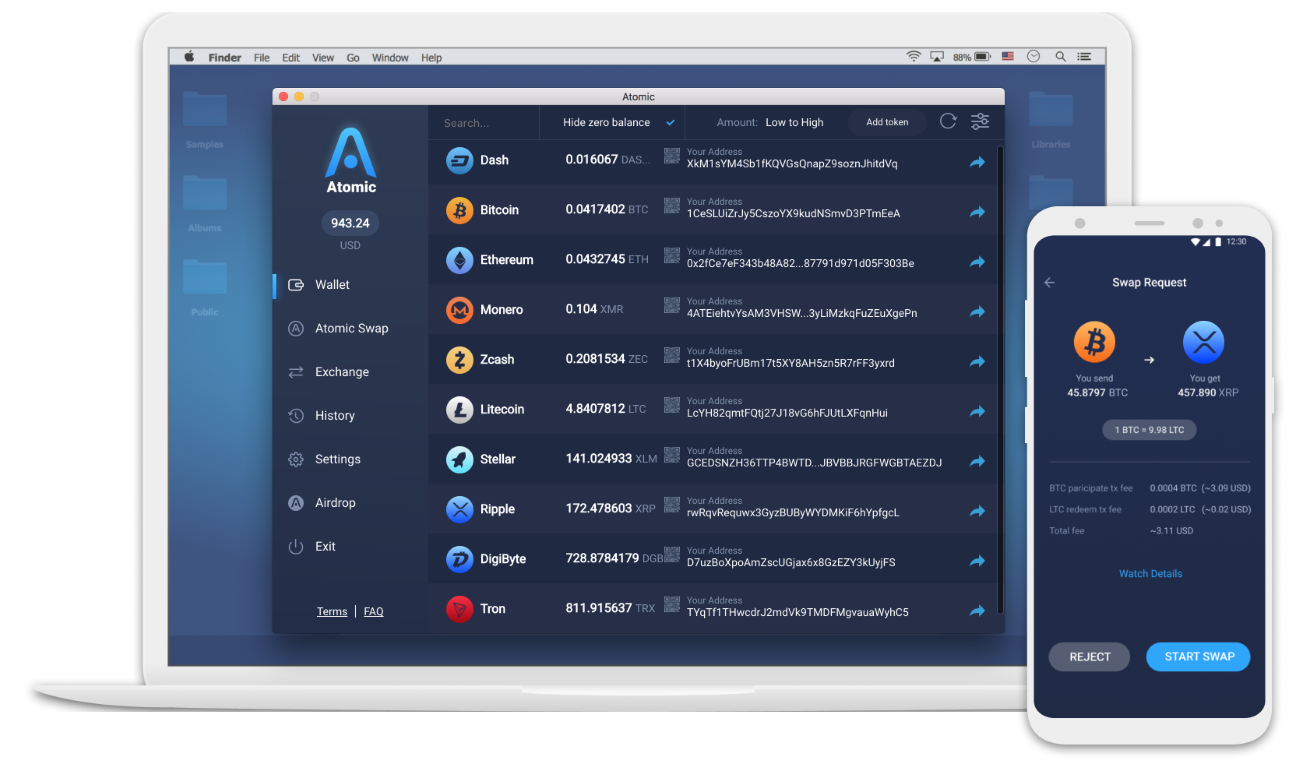
Digital currencies such as Bitcoin have become extremely popular, but Bitcoin is not the only digital currency available. One can invest in hundreds of other cryptocurrencies. Ripple (also known as XRP) is one of the most popular. Ripple’s total market capitalization is about 20% that of Bitcoin, making it the third most popular cryptocurrency by total investment.
Whether you invest i Ripple or any other cryptocurrency, you’ll need a digital wallets to keep your currency holdings safe. Unlike traditional fiat currencies, that can be deposited in federally insured banks, protecting cryptocurrency holding from theft is the responsibility of their owner. Anyone with major cryptocurrency investments should develop a strategy to protect their coins and the key piece of this strategy is the choice of wallet. We have identified the top Ripple Wallets and reviewed them here:
Ledger Nano S (Hardware Wallet):
Imagine having your Ripple XRP safe and sound, stored in a secure device designed only for protecting your cryptocurrency assets. This is possible with the Ledger Nano S wallet. It is a hardware wallet that looks similar to an USB drive. You can connect it to your computer and make transactions on the Ripple network. The Ledger Nano S is fairly inexpensive, at $99. There are a variety of security features which make this one of the most sought after cryptocurrency wallets in the world. Most importantly Ledger has a large community of developers who are constantly auditing and improving its software. Additionally, the Ledger spends most of its time disconnected from the internet making it hard to hack.
Toast Wallet:
This is an open source Ripple wallet and can be used by everyone. The best part of this wallet and the reason for its popularity is its ease of use. It’s available on many platforms including Windows, Mac, Chrome, Linux, Android, and iOS. There is no transaction fee apart from the 20 XRPs that you need to activate a Ripple address.
Edge Ripple Wallet:
Since its introduction, the Edge Ripple Wallet has quickly become very popular. Many users love the security features and ease of use produced by a team of crypto veterans. If you have used any banking app, won’t have any problem using the Edge wallet. The Edge wallet supports many other blockchains alongside Ripple, enables users to purchase Ripple with a credit or debit card for within the app, and it supports crypto to crypto exchange within the wallet. Edge is a great option and is available on iOS and Android.
Exarpy Wallet:
This is a wallet that has some very nice features such as portability, safety, autonomy and is available on most devices. The wallet only helps users transact with Ripple’s network. No information is stored by this wallet. However, for each transaction you are charged a flat fee 0.025 XRP regardless of the transaction amount.
GateHub:
GateHub offers a Ripple wallet and gateway, as well as rich analytics and a trading platform. However users are not the custodians of their funds as they are stored in the user’s trusted gateways. The GateHub trading markets support a lot of different XRP trading pairs which many Ripple supporters like taking advantage of.
Any of the above wallets could be a good choice for storing your Ripple. When making a decision, consider ease of use, security, the development team and also how you plan to use your Ripple. Will you be making regular transactions or trading it on exchanges often, or do you plan to hold onto it as a long term investment? Also remember that you can try one wallet and later transfer your funds to another if your needs change.








